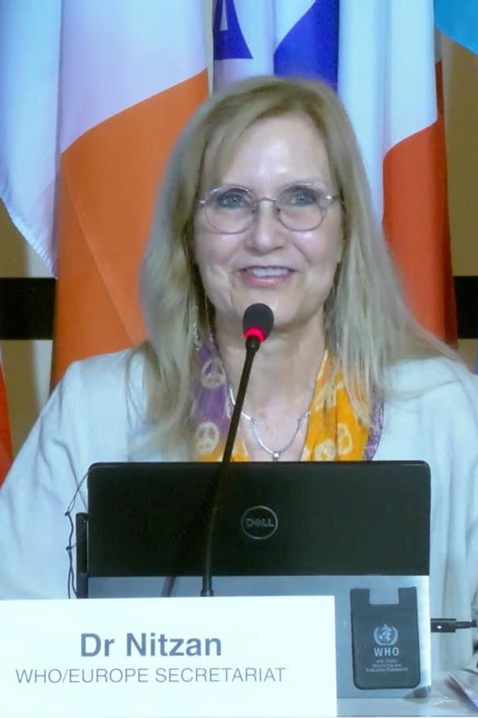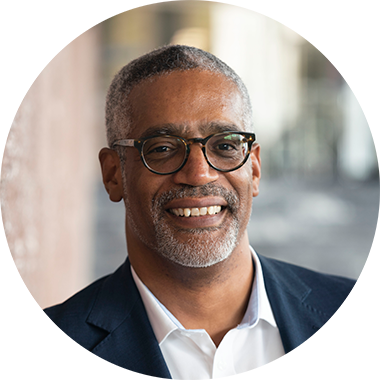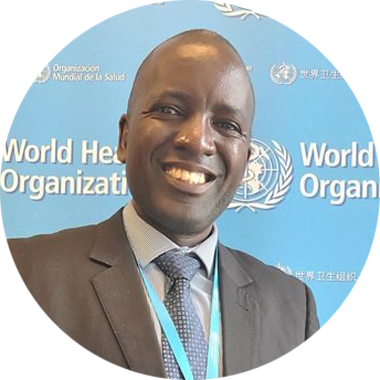
Dorit Nitzan
Regional Emergencies Director - European Regional Office, Denmark

Dorit Nitzan is aware of how fortunate she was to have grown up in a family of mentors where imagination and dreams were taken as seriously as social and academic education. Her parents taught her and her sister to always put themselves in the other person’s shoes and to care for those less fortunate. Her mother was a nurse and there were always needy children being cared for around her, so paediatrics felt like a natural choice for Dorit’s early dreams. She never lets an opportunity to fulfil her aspirations escape.
She has drawn important lessons from her experiences, for example being selected for an American youth education exchange programme during high school. She immediately understood the impact of grass roots community action and made a mental note for later. She enjoyed her studies, branched into nutrition, qualified as a doctor and returned to the US to continue her medical studies and specialities. Dorit’s work experience extended beyond the public hospitals to volunteering in walk-in community clinics for disadvantaged families and migrants, and towards the end of her fellowship she completed a master’s degree in public health. These studies refocused her goals from helping individuals via community initiatives to helping entire countries and communities via health systems and policy. She feels that without knowing it, she had always been building up to a career at WHO. It was the perfect outlet for her aspirations to help the vulnerable, serve the community and make a real difference in the world.
Dorit’s father used to tell her to set big goals and build towards them. This approach gave her a foundation of qualifications and work experiences, and these expanded to include projects in vulnerable communities. Then, with her goal set on WHO, she started to understand the importance of working in a public health ministry at home in Israel. There she helped to manage nutrition and food safety and travelled with the Israeli rescue team on humanitarian missions. Her work focused on outbreak investigations and soon she began to be involved in WHO committees and working groups established to further improve the emergency responses.
Today, Dorit is the director for WHO’s Health Emergencies Programme in the European Region. She oversees the prevention, preparedness, response and recovery of all emergencies that occur in the region’s 53 Member States. She explains, “Emergencies can destroy so many basic needs of whole communities and regions, not just health, but access to water and sanitation, shelter, food security, communications, protection of children, women and many other groups. An emergency can create chaos and erode the public’s trust in leadership.” She goes on to explain WHO’s mandate for working in emergencies. “Our role is to address all health and social issues and to support country and community needs, all while ensuring quality of care and services. We determine the standards and support and build the needed capacities to deliver them. We also continually monitor the situation and our results and when required, we work in the field too. Our strong operational partnerships are key to bringing expertise to where it is needed.”
…never let an opportunity to fulfil your aspirations escape!
Dorit joined the regional office when the new WHO Health Emergency Programme was born. She participated in building regional emergency programme teams. This meant that she could go back to dreaming, only this time it was about creating the ideal mechanisms to respond to every emergency. To bring experts closer to countries before an emergency strikes, a hub-and-spoke structure was established and formalized partnerships with Emergency Medical Teams, mobile labs and emergency responders were set up, ensuring WHO had people on the ground that were familiar with the context. Soon the Programme was put to the test when COVID-19 hit.
Despite the challenges of the pandemic, she is proud of her team’s successes: when shipments of masks, tests and vaccines arrive at destinations; when the most vulnerable get access to essential health services; when a health workforce has shielding equipment; when mental health is addressed during the pandemic; and so many more. Even with these successes, she continues to aspire to do better in all emergencies work.
Dorit could probably have joined WHO sooner, but her earlier roles gave her a wealth of expertise and humanitarian work experience. She joined the Organization as a WHO Representative at the country office level, where she adapted her knowledge of health ministry and humanitarian work to implement health programmes in an area including Serbia, Montenegro and Kosovo (in accordance with the UN Security Council Resolution 1244, 1999), and later in Ukraine. Each provided a unique set of difficulties and experience.
She’s in a good place now, sandwiched between answering to senior management and policy makers on one side and receiving and providing country feedback on the other. She is proud to serve WHO using her years of expertise and experience, together with a healthy dose of dreams.


